The Mushroom HuntersOn the Trail of an Underground America
Rich with the science and lore of edible fungi—from seductive chanterelles to exotic porcini—The Mushroom Hunters is equal parts gonzo travelogue and culinary history lesson, a rollicking, character-driven tour through a world that is by turns secretive, dangerous, and tragically American.
In the tradition of Michael Pollan’s The Omnivore’s Dilemma, Susan Orlean’s The Orchid Thief, and Mark Kurlansky’s Cod—a renowned culinary adventurer goes into the woods with the iconoclasts and outlaws who seek the world’s most coveted ingredient . . . and one of nature’s last truly wild foods: the uncultivated, uncontrollable mushroom.
Within the dark corners of America’s forests grow culinary treasures. Chefs pay top dollar to showcase these elusive and beguiling ingredients on their menus. Whether dressing up a filet-mignon with smoky morels or shaving luxurious white truffles over pasta, the most elegant restaurants across the country now feature an abundance of wild mushrooms.
The mushroom hunters, by contrast, are a rough lot. They live in the wilderness and move with the seasons. Motivated by Gold Rush desires, they haul improbable quantities of fungi from the woods for cash. Langdon Cook embeds himself in this shadowy subculture, reporting from both rural fringes and big-city eateries with the flair of a novelist, uncovering along the way what might be the last gasp of frontier-style capitalism.
Meet Doug, an ex-logger and crabber—now an itinerant mushroom picker trying to pay his bills and stay out of trouble; and Jeremy, a former cook turned wild food entrepreneur, crisscrossing the continent to build a business amid cutthroat competition; their friend Matt, an up-and-coming chef whose kitchen alchemy is turning heads; and the woman who inspires them all.
Rich with the science and lore of edible fungi—from seductive chanterelles to exotic porcini—The Mushroom Hunters is equal parts gonzo travelogue and culinary history lesson, a rollicking, character-driven tour through a world that is by turns secretive, dangerous, and tragically American.
Langdon Cook is the author of Fat of the Land: Adventures of a 21st Century Forager, which The Seattle Times called “lyrical, practical and quixotic.” Cook has been profiled on the Travel Channel, in Bon Appetit, WSJ magazine, Whole Living, and Salon.com, and his writing has appeared in numerous magazines and newspapers, including Sunset, Gray’s Sporting Journal, and Outside. He is also a columnist for Seattle magazine and has been athe recipient of many grants and awards. He lives in Seattle with his wife and two children.
We recently had a very interesting conversation with Author of The Mushroom Hunters Langdon Cook.
Booksaboutfood.com(BAF): There is almost a fantasy aspect to this book, in that you take the reader through some diverse landscapes. There are various different groups and languages belonging to this subculture. All in the quest of an elusive ‘treasure’.
Langdon Cook: It’s interesting that you use the word fantasy and in fact, you’re the first person to do that but it makes total sense because we’ve become so disconnected from nature as a society that taking a walk in the woods might be a really sort of alien form of entertainment for the average person these days and a walk through say a beautiful old growth forest in the Pacific Northwest might strike someone as totally otherworldly.
And I guess, I try and evoke some of that in different passages throughout the book and I spend a lot of time outdoors but for me that’s still part of the draw, the beautiful places and sometimes not so beautiful because, you know, a lot of the mushroom hunting takes place in industrial forests, forests that have been logged three, four times over…and those can be pretty difficult forests to wander through. They’re tailless, they’re dense, they’re dark, and they’re eerie. I think for a lot of people there’s a little bit of this sort of Hansel and Gretel in woods like that. They seem dangerous.
BAF: Early in the book on you allude to the romance of the mushroom picker wandering across hill and dale with a bucket and gathering up mushrooms as they see them, and then cut quickly to realities of the industry which is the hardworking mushroom pickers out in all types of weather, traveling all over the place.
Langdon Cook: That’s right. They’re itinerant. They move with the seasons, they’re working in fairly abject conditions That’s not to say that, one can be out on a beautiful day in beautiful woods, picking mushrooms that just seem to go on forever and having a great go of it.
But then there are days where you step foot in the woods and it’s like walking through a carwash, it’s soaking wet, it’s raining. The rain is difficult. The mushrooms are hard to come by and you’re grinding it out and you have to do this day after day. It’s stoop labor. You have to be in shape and it’s tiring.
I guess the point is that it’s not just a bucolic romp through the woods It’s hard work and most of the people who are doing it are fairly disenfranchised.
BAF: You talk about how rough it can be in the Pacific Northwest. You mentioned how people in Portland and Seattle really aren’t aware of what’s going on ‘out there’. They refer to people who don’t live in big cities as ‘self-sufficient’ or ‘self-reliant’.
Langdon Cook: You can see the disconnect there, the person sitting in a place like Seattle or Portland or San Francisco or New York or Washington DC or wherever and sitting in a nice restaurant, musing over the Morels or the Porcini on their plate and imagining the happy go lucky forager out there in the woods and maybe to a certain degree kind of romanticizing that image.
And I guess I try and puncture that mythology a little bit, but at the same time, I do have incredible admiration for the endurance and knowledge of the woods and just the ability to sort of work out this algorithm in order to find plentiful quantities of mushrooms, that’s one of the real appeal, I think, for mushroom hunters, both recreational and commercial, the treasure hunt aspect.
The idea that the mother lode is over the next hill and you just need to sort of figure out the puzzle of tree composition, and soil type, and weather conditions and all these different factors that go into finding large quantities of mushrooms. It really is a sort of natural Rubik’s Cube.
BAF: How did your learning curve with mushrooms occur? Was it just practice and being out in the woods.
Langdon Cook: It started with my general interest in foraging. I was a fisherman first and then I got really into shellfish. I was digging clams and picking oysters. I would go shrimping in Puget Sound and go diving for Dungeness crabs. And I did a lot of backpacking before the kids came along and just spent a lot of time in mountains and woods and we happened to live in a fairly ‘mushroomy’ place and for me a lot of it was just knowing what we live with. I like to know the different species of wild flowers and trees and of course, mushrooms. I don’t know, maybe I’m a serial hobbyist or something.
At a certain point when I started learning about mushrooms, they really just captured my imagination and I just kind of went whole hog and dove in and just really started cooking with them a lot and going out and looking for different species. It was so much fun to learn the mushrooms as they were in the wild but then to bring them home and to cook with them in the kitchen and I’m still in that process. Probably the next step for me is learning more about the non-edible species.
BAF: Mushrooming has a reputation of being a little dangerous because some of the varieties, edible non-edible are very similar aren’t they?
Langdon Cook: I say in my classes, the forager’s golden rule is you never eat anything that you can’t identify without a 100% certainty, and especially with mushrooms and not to be an alarmist there’s only a handful of species that are deadly poisonous. But it’s probably more important to recognize those species before you start learning to recognize the edible ones and then there are a lot of mushrooms that are either bland or unappetizing or unpalatable. They’re not going to kill you but you wouldn’t want to eat them.
The most popular edible species are relatively easy to identify. Although I caution people it’s best to learn from someone else who knows what they’re doing in field as opposed to just looking at field guides, because photographs don’t tell the full story. You really need to hold the mushroom in your hands, look at it from all angles, get a sense of the habitat that it was growing in. Really just learn about mushroom in person and you just can’t do that with field guides.
BAF: Children seem to love finding mushrooms, that’s a big deal for them.
Langdon Cook: I think all kids are like that and then there’s a certain point where we start to lose that fascination with the magical qualities of nature and we’re on to other things and these days, those other things are likely the computer or the other devices and screens and somehow the natural world just loses its charm.
But it’s very easy to rediscover and I just love taking adults out into the field and they find their first Chanterelles and their eyes just light up and then there’s the second, you know, and they’re out there racing through the wood, right, and it’s a great feeling to see how they almost have regained a bit of their childhood in the process because as I point out in the book, mushroom hunting is like being a kid again on a treasure hunt in the woods and it’s fun. It’s great recreation and then, of course, there’s the bonus at the end which is the meal that you get out of it.
BAF: As an interloper, for lack of a better word, were you ever really accepted as a mushroom hunter or were you always ‘the writer’ who’s tagging along?
Langdon Cook: Well, you know, there’s this notion that mushroom hunters are really secretive and it’s a clandestine occupation that kind of happens out of sight, under cover of the woods and that the pickers have their secret patches and nobody’s going to reveal anything. There’s that mythology and there’s an element of truth there.
But I also found that most of the people that I’ve spoke with were really generous with their knowledge and they would take me into the woods and show me patches and talk about the inside baseball of the trade, tree species that produced mushrooms that weren’t necessarily listed in the literature or habitats that had mushrooms that might surprise even mycologists.
So I was privy to a lot of good information. But at the same time there were moments and I write about some of these moments in the book, when there might be a particular picker or buyer who was very suspicious of me and my intentions.
For instance I write about in the Matsutake chapter, when I meet this one picker out by the fire, and he’s a young guy, I think in his 20’s and he’s … I think he’s probably Laos and Cambodian and he’s sitting by the fire and it’s cold out. I mean, it’s barely above freezing and he’s just wearing a t-shirt and shorts and drinking a beer and he kind of crumples up his empty beer can and throws it in the cardboard box and looks at me and basically says what are you doing here? You know at that point, I just say, yeah, well, I’m leaving. But we have this exchange in which he says to me, we do this for survival.
And it’s clear that the word survival means so much more in this case. Of course, he’s doing it for money, okay, so survival on that level but there’s so much more at stake for him and what he’s really talking about is cultural survival because this mushroom camp is a place for people like him who have left their homeland to gather, reconvene, and share in their culture. On that level, it’s really, it’s remarkable, but he was a little bit skeptical of what I was doing there. I was an outsider with no skin in the game.
BAF: You did have those run ins but for the most part, what was also fastinating is that these people are trying to get as many mushrooms as they can, to make money, did come across as being very generous and with a ‘we’re all in the same boat together’ attitude, so they would share information and share tips and let others know about patches and what not.
Langdon Cook: That’s right, usually people are very guarded when they’ve got a little money maker like that, but, no, there’s a surprisingly a lot of sharing that goes on. And that, perhaps, goes against what we’ve heard about this industry.
BAF: And this is a shadowy, for lack of a better word, industry or community all you hear are the extreme parts.
Langdon Cook: That’s right, and, you know, it would take a few incidents that were not the norm before the general media would become interested in what was going on in the woods with these mushroom camps, so, you know, a shooting or a murder or something like that and then they were all over it but there is some truth behind the notion that pickers were packing guns into the woods but as I point out, at least I the early years and we’re talking about back in the late ‘80s, early ‘90s. In a lot of cases they were being used by new immigrants who were afraid of the wild animals that they’d heard about, bears and cougars and things like that. Well, those aren’t going to bother you but whatever the case that, you know, they wanted to protect themselves so there were some guns in the woods and the media got a hold of that and it might have been blown a little bit out of proportion. I have to say, I don’t see a lot of guns in the woods these days. They’re there but for the most part, I think that most of these folks are just heading off into the woods with their buckets and their knives and trying to find as many mushrooms as they can to deliver to the buyer that evening so they can put food on the table.
BAF: It was really striking just how knowledgeable these people were about the terrain and the forest,the animal life, the ecology, the whole spectrum.
Langdon Cook: That’s true, well, that’s boots on the ground. That is spending time and building up a knowledge base through direct engagement and I think that’s something. I’m glad you picked up on that because I wanted that idea to run through the book. The idea that we could all benefit from spending a little more time outdoors engaging with our environment and there’s a lot to learn and I personally find that sort of learning very rewarding.
Knowing, knowing the trees of the forest, knowing the animals, knowing how this whole web of life is working in concert, right, to produce a mushroom at a certain time of year, in a certain place. There’s a lot of satisfaction to be had there. In some cases, the folks that seem to know the most about this are the most recent arrivals here and have very little else to show for themselves but they know their way around the woods. And in some cases they don’t have the means to express what you’re talking about in terms of the ecology but they know it, right. They know it in their bones.
BAF: Are you still mushrooming yourself these days when you get the chance?
Langdon Cook: Yeah, we’re actually having a pretty good season out here in the Pacific Northwest. I know that a lot of recreational mushroom hunters have been filling their baskets lately with Porcini and Chanterelles and lobster mushrooms.
BAF: You actually make the reader very hungry when you were talking about your appreciation for the mushroom in the beginning of the book and some of the dishes you were making.
Langdon Cook: Yeah, well, you know, mushrooms are a kind of a dream for the hunting cook. They’re loaded with umami, the Japanese concept of the fifth flavor, that sort of comfort inducing savoriness that spreads across the palate and just makes you feel good all over and they combine really well with other ingredients and mushrooms have all sorts of different colors and textures and they’re great substitutes for meat. They’re really fun to cook with.
BAF: Are your lecturing now?
Langdon Cook: Well, you know, the book just came out and I’ll be visiting some mycological groups, going to some lit fests, mushroom fairs and things like that. I am visiting a few bookstores but mostly in my neck of the woods. Now, I’m developing some new slide shows to go with this book which are more about the pickers and I’ve got tons of photographs of pickers and buyers
BAF: What are you working on now?
Langdon Cook: It was really a fun book to write and, you know, my wife thinks it’s all a racket. She thinks, you know, it’s just an excuse for me to head off and tramp around the wilderness by day and then hook up with some folks to cook really extravagant meals and drink a lot of wine at night, and, hey, I’m not going to lie, that’s part of it, too.
In terms of what I’m working on now, I do have some ideas. But I will tell you this that I am sticking with wild foods. I think they’re charismatic. They have stories to tell and, that’s what I like to do. Which will enable me to get outdoors and also do some research in the kitchen as well.
Booksaboutfood.com © 2013
“If you’ve never thought of using the words ‘mushroom’ and ‘adventure’ in the same sentence, this gripping book will force you to reconsider.”
—Bill McKibben, author of Oil and Honey: The Education of an Unlikely Activist
“With superb detail and intrepid research, Langdon Cook leads a fascinating trek deep into the mysterious world of mushroom hunting, blending intriguing natural history and quirky characters with insights into this murky, sometimes dangerous business. This is riveting stuff for food lovers.”
—Kathleen Flinn, author of The Sharper Your Knife, the Less You Cry
“The Mushroom Hunters is one of those very infrequent and wonderful books that change your way of looking at something you think you don’t care about. Who knew the humble mushroom could be shot through with suspense? The way Langdon Cook writes about these delicious fungi—the excitement in the story of their capture; the flair of the telling—has me convinced I’d go pretty far out on the wire myself to get some.”
—Darin Strauss, author of Half a Life
“A beautifully written portrait of the people who collect and distribute wild mushrooms, The Mushroom Hunters is food and nature writing at its finest. Langdon Cook’s descriptions are so visceral you can smell the mushrooms, the forests, the rain on every page. This is a terrific book.”
—Eugenia Bone, author of Mycophilia
“In these pages, you’ll meet America’s last nomads in all their ragamuffin glory. Langdon Cook brings these individuals to life with the eyes, ears, and heart of a first-rate novelist.”
—Lawrence Millman, author of Last Places


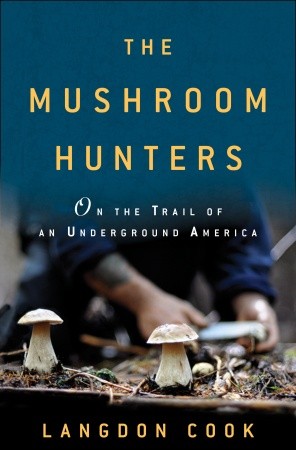


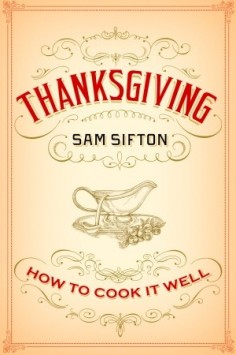
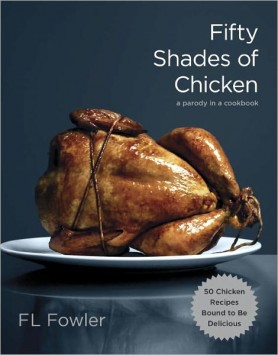


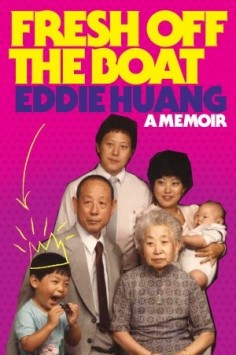
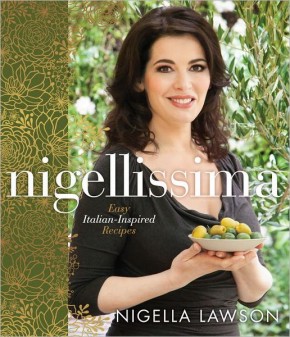
Leave a Reply